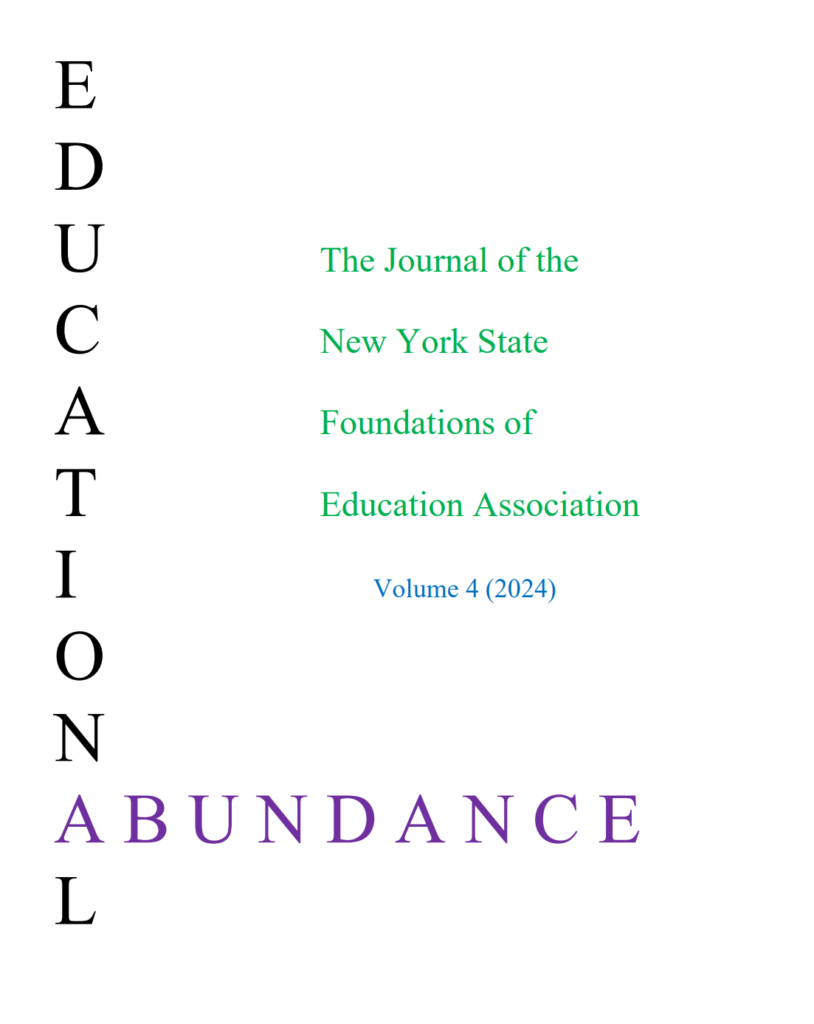educational abundance
Journal Issues

Educational Abundance - Vol. 4
Table of Contents
Keynote Address – Out of the Classroom and into the Streets: What Movements Teach Us about Learning and Struggling Toward Justice
Krystal Strong 1
Educating for Democracy with and against Divisive Discourses: Presidential and Editorial Opening Remarks
Leslee Grey and Greg Seals 12
“Who Is Going to Be Able to Do What I Do?” Dynamic Expressions of Social Capital Among Teachers
Holly E. Marcolina 21
Reflections on Decolonial Pedagogy and Antiracist Teaching: Assessments as Resistance in Pre-service Teacher Education
Amanda M. Kingston, AJ Borja, Caitlin Cafiero, Calissa Brown, and Mario Rios Perez 36
Teacher Autonomy and Lesson Planning
Anne Shields and Madhu Narayanan 48
Contextualizing the Canon of Primary Sources: Examining a Critical Thinking Pedagogy in School Survey History Courses
Lori-Ann Newman 57
Undoing the Knower? Education, the Problem of Truth, and Artificial Intelligence
Greg Seals and Mark Garrison 65
How to Be an Antifascist Educator
Vicki Dagostino-Kalniz 80
Challenging Latinidad: Learning from Baseball in Teaching About Latinxs
Tim Monreal and Iman Lathan 91
The Role of Cultural and Socioeconomic Capital in Students’ Occupational Aspirations: United States, Finland, and China
Robert Niewiadomski, Ruoyi Zhang, and Jianing Li 101
Cultivating Science Cultural Capital among Preservice Teachers in an Online, Synchronous Science Method Course
Rupam Saran 107
Panel Discussion of Dale T. Snauwaert’s Teaching Peace as a matter of Justice: Toward a Pedagogy of Moral Reasoning
Author’s Summary
Dale T. Snauwaert 119
Reflections on Snauwaert’s Teaching Peace as a Matter of Justice
Janet C. Gerson 122
Epistemological Considerations in Snauwaert’s Teaching Peace as a Matter of Justice
Jeffery H. Warnke 128
Noncircular Answer to the Question, “Why Be Moral?” On Dale Snauwaert’s Teaching Peace as a Matter of Justice
Greg Seals 133
